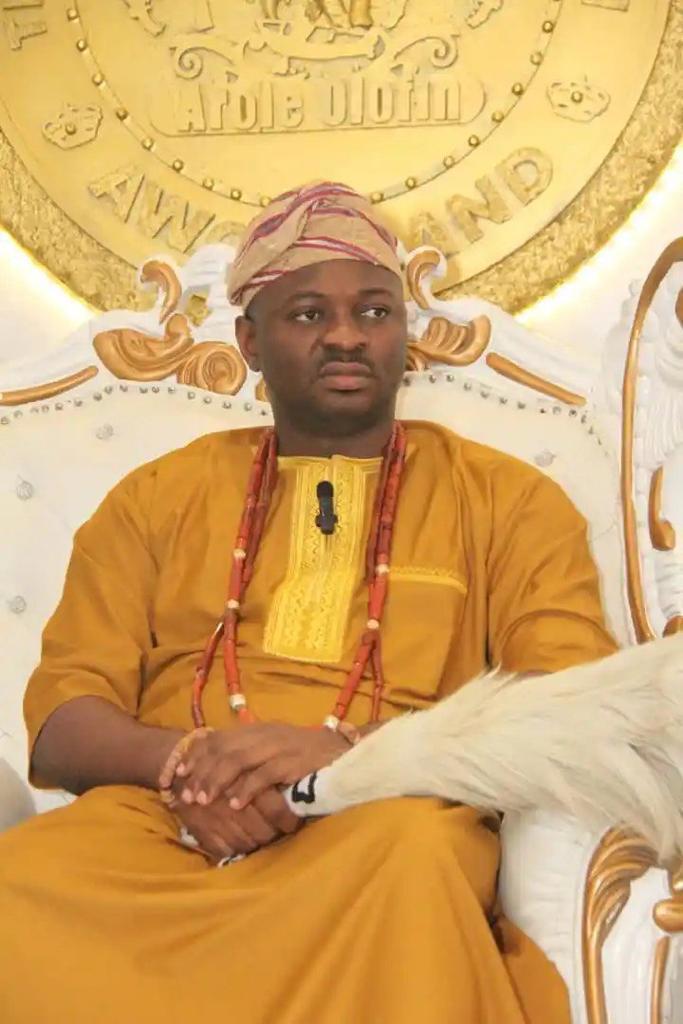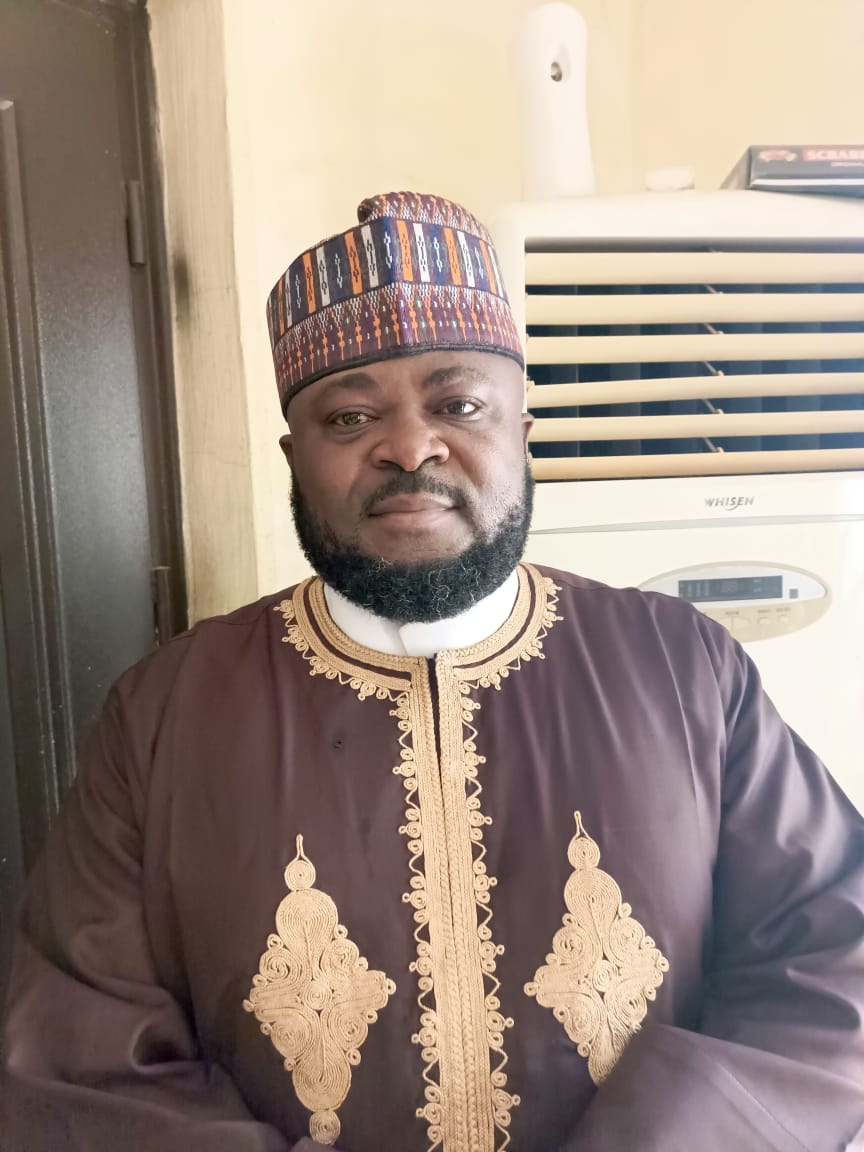Every Inch of Eko (Lagos) Was Founded by The Awori: Olofin of Isheri Declares.
Sequel and in response to a recent statement made by the Benin oba regarding the historical founding of Eko (Lagos), His Royal Majesty, Oba Sulaiman Adekunle Bamgbade, the Olofin of Isheri and revered successor of the ancient throne of the Aworis’ progenitor, has affirmed to the Awori Heritage Alliance of North America that Eko (Lagos) was undoubtedly founded by the Awori people.

In light of this confirmation, we, the Awori Heritage Alliance of North America therefore issue the following statement to emphatically and resolutely repudiate the remarks made by the Benin oba concerning the founding of Eko (Lagos) during his courtesy visit to the Lagos House, Marina on Sunday, 26 November 2023.
This statement by the Benin oba is not only erroneous, it in fact constitutes an utter disregard for the centuries old strongly held historical traditions of Eko (Lagos); as well as the documented historical facts on the founding or source of Eko, Lagos.
In his statement, the Benin oba alleged that a “certain area in Lagos, maybe the nucleus of Lagos was founded by my ancestors”. This profound misrepresentation of historical fact actually undermines the rich and verifiable history of the Awori subgroup of the Yoruba ethnic group who are the autochthonous people and founders of Eko, Lagos.
It is imperative to at this point adduce certain highlights from the published as well as archived official historical records of Lagos, as collected from the native historical traditions of the indigenous inhabitants of Eko (Lagos) by the British colonial administrators of Lagos & Nigeria.
The Deputy Chief Secretary to the British Government of Nigeria, Sir Alan C. Burns, GCMG published the “History of Nigeria” in 1929 for the British colonial authorities based on the historical traditions collected in Nigeria from the native sources. The founding of Eko (Lagos) was detailed, and the nature of Lagos’ relationship with Benin was clearly spelt out as quoted below:
“A band of Yorubas, led by a cadet of the royal family, appears to have settled at Isheri, on the Ogun river … the settlers then spread southwards to Ebute Metta, on the mainland opposite Iddo island, where a town was built and farming was begun. Some time after this the inhabitants moved across to Iddo island, … Iddo, however, was scarcely large enough to support the number of settlers, … it was [then] decided to begin cultivation on the neighbouring island of [Eko] Lagos … [When] the first invasion from Benin took place; the inhabitants were fortunate that at this crisis their Olofin, or ruler, was a man of great courage and strong character, and under his leadership the King of Benin’s soldiers were repulsed.
Subsequent attacks met with no better success, and the Olofin gained in fame and influence. He is reputed to have had thirty-two sons, … one succeeded his father as Oloto of Iddo, the title of Olofin falling into abeyance … The custom of the [Eko] Lagos chiefs to wear “white caps” came originally from Iddo, and was introduced by the ten sons of the Olofin, whose successors still wear similar caps.
Some little time after the Olofin’s death there began the peaceful penetration into [Eko] Lagos of settlers from Benin. The Binis probably realised that they would not be able to occupy [Eko] Lagos by force, as they had already been so decisively beaten in their attacks on Iddo, and it is thought that they were also prevented from further aggression by superstitious fear, the dying wife of the Olofin having pronounced a terrible curse on any further invaders from Benin. Whatever may have been the reason, the Binis arrived with no great show of force, and permission was asked of the [Eko] Lagos people for them to land.”
Furthermore, a “confidential” colonial report of the British Intelligence Division entitled “Précis of Information Concerning the Colony of Lagos, Together with Notes on the Neighbouring Native Territories”, compiled in February 1888, unequivocally admits the Awori’s founding role of Eko, Lagos.
This British document which was printed for the archives of Her Majesty’s Stationery Office, outlines the arrival of the Bini immigrant group (among other non-native immigrant groups) into Lagos. These non-native groups, such as the Bini group, were able to settle-in on the island only after their sought permission to land was granted by the Awori natives. European coastal trading activities had by circa 1570s transformed the Eko area into a focal point of considerable importance. This development drew in non-native immigrant trading groups such as the Bini group.
All of the above historical information which were collected from the historical traditions of the natives, by the British authorities evidently establish the following facts:
(1) That the Awori (a subgroup of the Yoruba ethnic group) are the autochthonous people of Eko (Lagos), as well as the founders of Eko, Lagos.
(2) That the Bini trading group who visited the area centuries later, and got allotted a piece of the island to encamp (as was done for others) have nothing to do with the founding of Eko, Lagos.
In addition to the foregoing historical facts regarding the founding of Eko, we wish to shed light on another often-misrepresented aspect of our history. This pertains to the identity of the historical Ashipa — the progenitor of the royal dynasty of the Eko kingdom.
This Ashipa is identified without any trace of uncertainty in the classical Awori historical traditions as a Yoruba noble (Awori) from Isheri-Olofin. This historical fact is also documented in the same early records of Lagos history already cited above. The same information is also contained in other early records of Lagos history such as the “Notes of Evidence tendered by Mr. Herbert Macaulay, C.E., At the Commission of Inquiry. Re: The Succession to the House of Docemo” in the year 1920.
The marital-alliance of this Isheri chief (Ashipa) with the family of the then Benin oba produced the first crowned-king of Eko, King Ado. However, we must stress that while King Ado’s ancestry traces also to the then Benin oba through King Ado’s mother; this issue from the marital-cum-political alliance does not confer the founding right of Eko (Lagos) upon Benin kingdom or the Bini people; neither does Ashipa’s tribute of gratitude to his royal-political patron & in-law confer such right.
As has been demonstrated from the original received traditions of Lagos which are also referenced to the earliest official records of Lagos history, it becomes clear that it is blatantly erroneous and categorically misleading to even suggest that Benin kingdom founded any part of Lagos. No! Not an “inch” of Lagos was founded by the Benin kingdom or the Bini people.
Furthermore, the present Benin oba’s snide remark at His Imperial Majesty, the Ooni of Ife, Oba Adeyeye Enitan Ogunwusi (Ojaja II) will not be overlooked. Not only was the remark disrespectful to the person of a permanent Co-chairman of the National Council of Traditional Rulers of Nigeria (NCTRN), a council of which the Benin oba is merely a member; it is also couched with grave historical fallacy. We demand an unreserved apology for this sacrilegious incivility and blatant insult to the cradle of the Yoruba civilization.
We strongly urge the Benin oba to, going forward, desist from making statements such as this which are not only false (as have been demonstrated), but also have the potential to stir up irreparable inter-ethnic strife capable of setting Nigeria on the path of irreversible disharmony & potential balkanization; especially as we are all only slowly recovering as a Nation from the ugly discords of the 2023 elections.
We stand firm in our commitment to preserving and promoting the historical truth and call for a respectful acknowledgment of the same by all parties. We also demand a retraction of this fallacious statement from the Benin oba, and we insist on an unreserved apology to all Awori sons, daughters, kith & kin; His Imperial Majesty, the Ooni of Ife; and the Yoruba race as a whole.

 Business6 months ago
Business6 months ago
 Business6 months ago
Business6 months ago
 celebrity radar - gossips6 months ago
celebrity radar - gossips6 months ago
 celebrity radar - gossips6 months ago
celebrity radar - gossips6 months ago


















